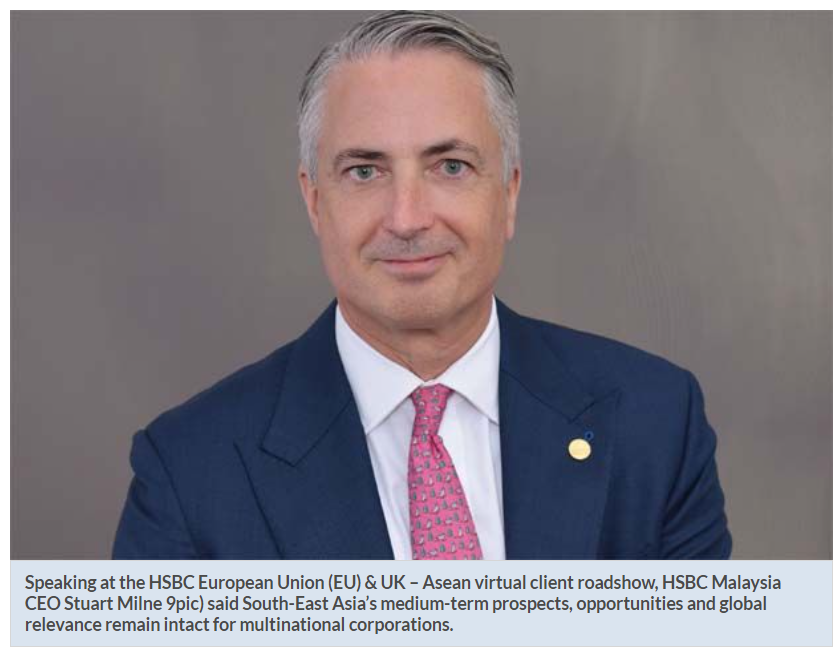Malaysia: Call for policy reform to boost FDI
KUALA LUMPUR: Malaysia is primed to be a major beneficiary of European and UK investments but greater adoption of trade, sustainability, technology and digital trends and reform is required to convert this potential into reality.
Speaking at the HSBC European Union (EU) & UK – Asean virtual client roadshow, HSBC Malaysia CEO Stuart Milne (pic) said South-East Asia’s medium-term prospects, opportunities and global relevance remain intact for multinational corporations.
Over the past year, export flows across electronics, pharmaceuticals, commodities and mining have continued at pace, Asean’s supply chains have remained resilient and foreign direct investment (FDI) has continued, HSBC said.
For 2020, Asean registered a growth of US$70bil (RM291bil) in greenfield investments, according to UNCTAD’s Investment Trends Monitor. This was the biggest such FDI inflow of any developing world region.
Malaysia too has received significant FDI volumes and is uniquely positioned to capture increasing opportunities arising from supply chains that are moving to the region.
In the first quarter of this year, the country’s FDI rose to RM9.1bil from RM6.8bil in the previous quarter.
The EU and the UK remain key inbound investment sources.
Milne said: “South-East Asia’s large demographic of young and relatively lower cost labour make it a very attractive destination for international companies. But it’s not without its challenges including some lagging in productivity, digital and sustainable practices.
“The key for the region is to regain its traditional growth drivers of trade and investment, coupled with capturing the opportunities emerging in the green and digital space.
“This will require the Asean markets to pull several policy reform levers, especially if it is to attract overseas investment.”
He said as a strategic hub in Asean with strong economic fundamentals, Malaysia provides a range of investment opportunities to organisations from the EU and the UK.
In turn, these organisations can be a significant source of investment across the green and technology sectors for the country.
“But success will require building resilience and transforming how we do things in Malaysia now and in the future.”
The region is not without its challenges. Vaccinations would not be substantially rolled out until 2022, which would stunt its consumption growth as lockdowns continue.
The region will also see increasing competition for private investment from other emerging economies such as India.
Moreover, as business normalcy slowly returns, regional companies have seen this period of digital adoption as a short-term switch rather than a strategic shift, HSBC said.
To remain competitive and to appeal to a growing population of online users, companies need to forge on and not let momentum stall.
Rapid action is needed across all areas – energy, transport, urban buildings, industrial and land – to achieve the ambitions of Malaysia’s Shared Prosperity Vision 2030.
To offset these headwinds, greater policy reform to encourage greater trade flows, technological improvements to increase manufacturing productivity, and digital and sustainability adoption is needed.
Some of the policy actions could include ratifying free trade agreements like the Regional Comprehensive Economic Partnership that would help drive export growth, as it seeks to eliminate many of the barriers while opening Asean countries to more trade activities.
Source: thestar.com.my/business/business-news/2021/07/06/call-for-policy-reform-to-boost-fdi


 Thailand
Thailand




